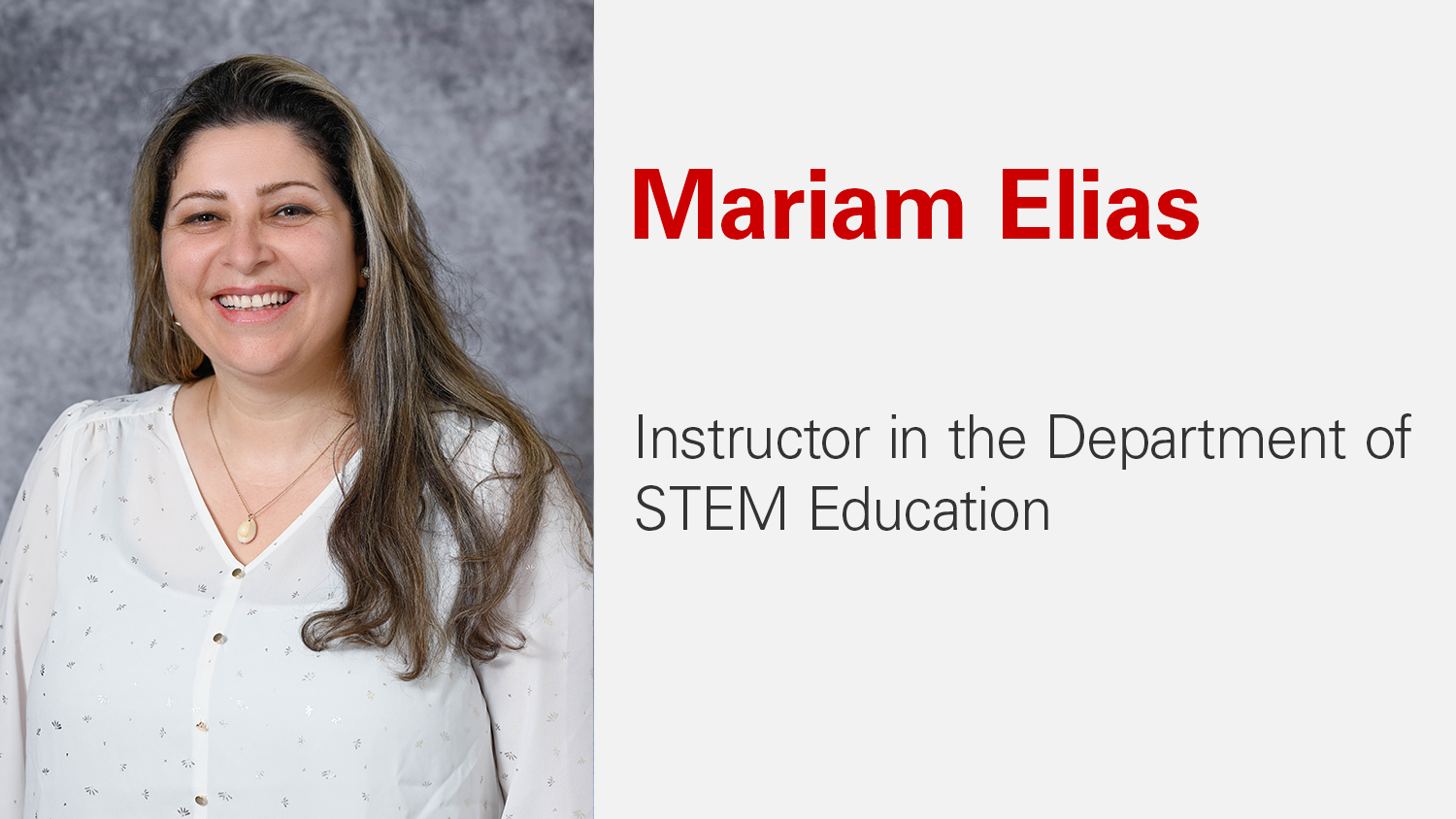Meet Instructor Mariam Elias ’17, ’20MED, ’24PHD: ‘I Want My Students to Always Remember to Work Hard, Accept Failure and Get Back Up and Keep Trying’

Mariam Elias ’17, ’20MED, ’24PHD will join the NC State College of Education in the 2022-23 academic year as an instructor in the Department of STEM Education.
A former math teacher at several international schools as well as in the Wake County Public School System, Elias is currently earning her Ph.D. in Learning and Teaching in STEM in the engineering and technology education program area of study from the College of Education. She earned a Bachelor of Science in Technology, Engineering and Design Education and a Master of Education in Technology Education from the College of Education as well.
In the following Q&A, she shares why she chose a career in education, why she decided to pursue a doctoral degree and what she hopes her students learn from her.
The following Q&A has been edited for clarity.
Why did you choose a career in education?
Social impact. Everyone needs someone to believe in them. I had a teacher that impacted me as a child and helped shape me into the person I am today. Choosing a career in education as an educator, I get the opportunity every day to inspire, motivate and encourage my students to achieve their goals. I chose education because I wanted to convey knowledge and an excitement for learning and influence the next generation of students with a passion for discovering.
What inspired you to pursue a doctoral degree?
The first day I had the opportunity to step into a classroom as an undergraduate instructor a couple of years ago, I was absolutely hooked. I knew beyond a shadow of a doubt I had to make this my career and work to earn a doctoral degree.
What are your research interests?
My research interests include teaching in a digital age, delivering content in higher education and examining the characteristics of pedagogical content knowledge (PCK) in online distance education in North Carolina. Content knowledge (CK) is what many develop during our academic years and graduate school. Likewise, we typically have a broad pedagogical knowledge (PK), or knowledge about teaching itself. Both content and pedagogy were considered as one equivalent body of knowledge by which content is about what is known, and pedagogy is about how to teach it.
What sparked your interest in those topics?
The COVID-19 pandemic has raised significant challenges for the higher education community worldwide. A particular challenge has been the urgent and unexpected request for previously face-to-face university courses to be taught online. Online teaching and learning imply a certain pedagogical content knowledge (PCK), mainly related to designing and organizing for better learning experiences and creating distinctive learning environments with the help of digital technologies.
What is one moment or project in your academic career that you are particularly proud of?
Graduation with the highest honor: summa cum laude. Throughout my journey, I faced many obstacles and challenges; the path was not easy for me. Having four kids and working on earning a degree is a bit tough. But, teaching has always been my passion, which has helped me keep focused to work hard to earn my teaching degree and license. We can reach our goals and exceed expectations with commitment and hard work.
What is your teaching philosophy?
I have learned that caring is the main ingredient of becoming a great teacher. A teacher becomes great when they care about their students’ lives beyond a particular class. I am a firm believer in providing real-world motivations before presenting a concept. My teaching philosophy’s theme is encouraging students to use critical thinking and seek answers and knowledge upon their reasoned thought and keep them motivated. Once a topic is motivated, the next challenge is to keep the students engaged. Learning is intensely correlated with the level of engagement.
What do you hope your students learn from you?
Never give up. I want my students to always remember to work hard, accept failure and get back up and keep trying.
What makes someone an “extraordinary educator”
An educator who seeks ways to challenge students to be the best they can be. An extraordinary educator can make a difference in students’ lives, cares, adapts and makes a positive impact.
- Categories:


